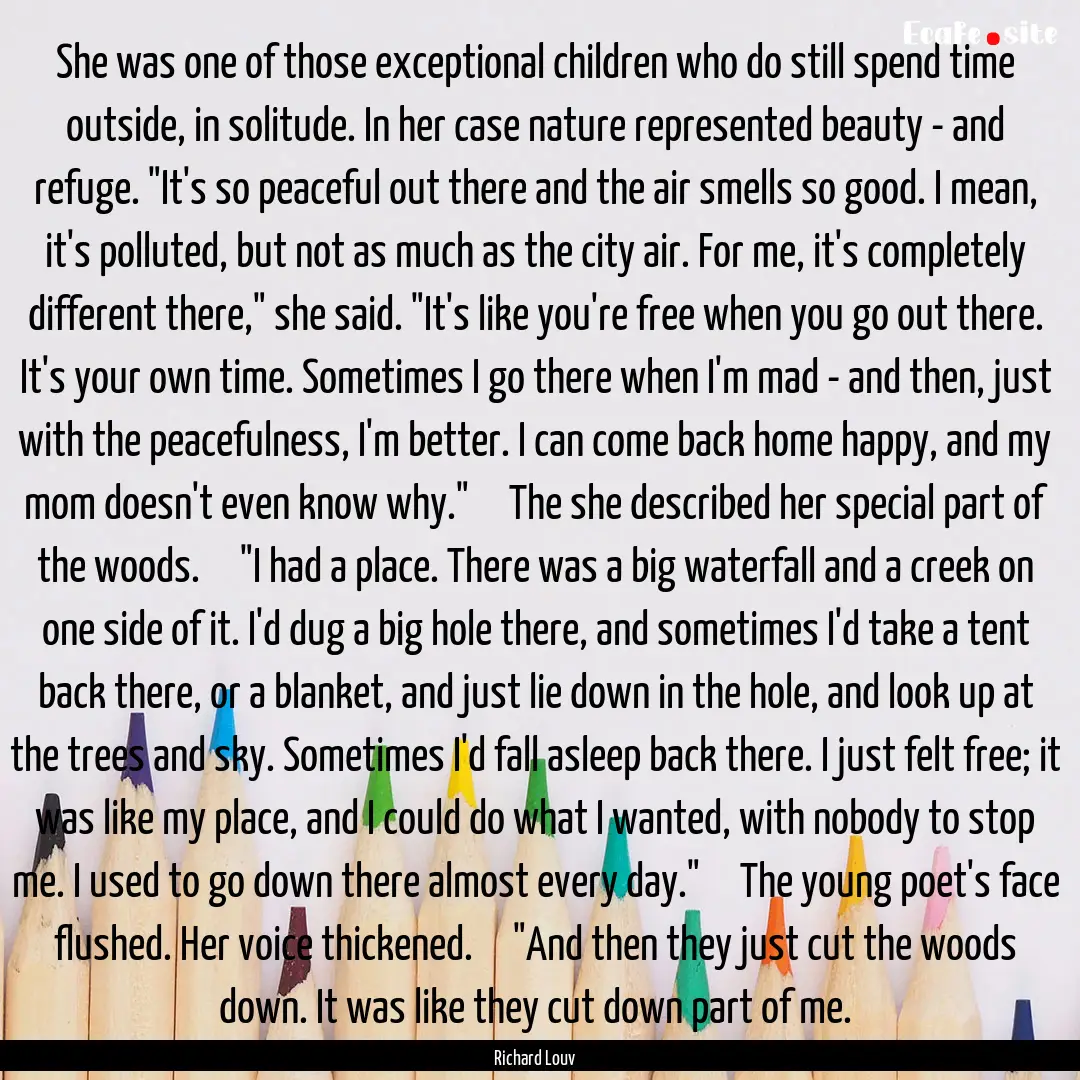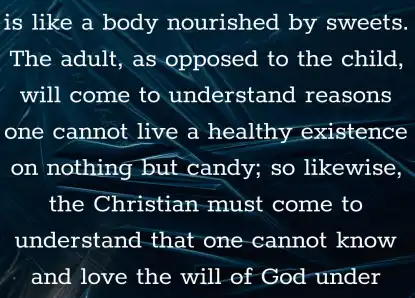
Report, if you have a problem with this page“ She was one of those exceptional children who do still spend time outside, in solitude. In her case nature represented beauty - and refuge. "It's so peaceful out there and the air smells so good. I mean, it's polluted, but not as much as the city air. For me, it's completely different there," she said. "It's like you're free when you go out there. It's your own time. Sometimes I go there when I'm mad - and then, just with the peacefulness, I'm better. I can come back home happy, and my mom doesn't even know why." The she described her special part of the woods. "I had a place. There was a big waterfall and a creek on one side of it. I'd dug a big hole there, and sometimes I'd take a tent back there, or a blanket, and just lie down in the hole, and look up at the trees and sky. Sometimes I'd fall asleep back there. I just felt free; it was like my place, and I could do what I wanted, with nobody to stop me. I used to go down there almost every day." The young poet's face flushed. Her voice thickened. "And then they just cut the woods down. It was like they cut down part of me. ”

Richard Louv
From : Last Child in the Woods: Saving Our Children from Nature-Deficit Disorder



